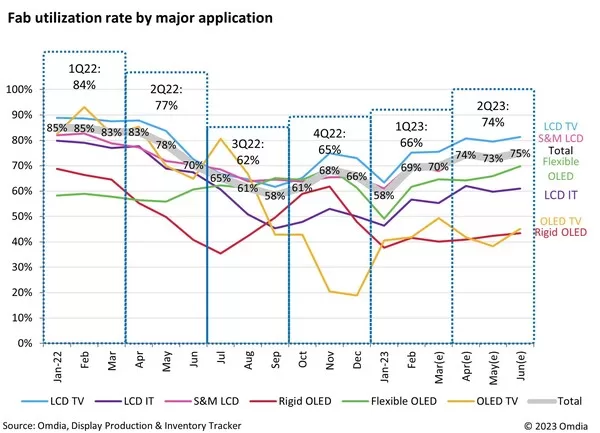QUZHOU, China, May 26, 2023 — This is a report from China.org.cn Quzhou, a city in eastern China, is offering generous rewards to lure top enterprises and high-quality talent…
CCTV+: Stories of Xi and his mother: a parent’s lifelong influence on her son
BEIJING, May 14, 2023 — For Chinese President Xi Jinping, his mother Qi Xin has set an outstanding example in many ways for her son and played a crucial…
PatSnap Publishes 2023 Annual Report on the State of IP in a Tech-Driven World
LONDON, April 27, 2023 — PatSnap, a leading provider of innovation intelligence solutions, has released its 2023 Annual Report on the State of…
Global Sources and MU Group Enter RMB 100 million Strategic Cooperation Agreement
HONG KONG, April 19, 2023 — Global Sources and MU Group have signed a strategic cooperation framework agreement with a total value of RMB 100 million onsite at Global…
Omdia: Global display fabs capacity utilization recover to 74% in 2Q23 while OLED fabs are under 60% average
LONDON, April 18, 2023 — New research from Omdia’s Display Production & Inventory Tracker reveals that total display fab capacity utilization is recovering from 66% in 1Q23 to 74%…
Hainan: From a southern island to a Free Trade Port
BEIJING , April 13, 2023 — A news report from China.org.cn on Hainan Free Trade Port:   "The spring breeze brushes through Hainan Island." "Flowers and fruits blossom everywhere"……
Dream Weavers in the countryside: Lighting up Scientific Dreams for Children
BEIJING, April 7, 2023 — A news report by China.org.cn on China’s rural education:   Trashcan drones, water rockets made out of plastic bottles, DIY "wandering balloons"……
AI NPCs are the future of gaming: Parametrix.ai leads the way with its revolutionary GAEA system
"Advanced AI NPCs will bring more diverse storylines, providing players with an immersive and unpredictable game experience-just like Westworld." SHENZHEN, China, March 24, 2023 — This is a report…
WordUp, an AI-based English learning App, Introduces Fantasy Chat
LONDON, March 23, 2023 — Over 1.5 billion people speak English as a second language. They are naturally at a disadvantage compared to native speakers in a globalised world where…
CGTN:A look at China’s democracy: What is the essence?
BEIJING, March 20, 2023 — Carrying his fellow villagers’ hopes and expectations, Long Xianwen of the Miao ethnic group, headed to Beijing from his remote village in central China’s…






